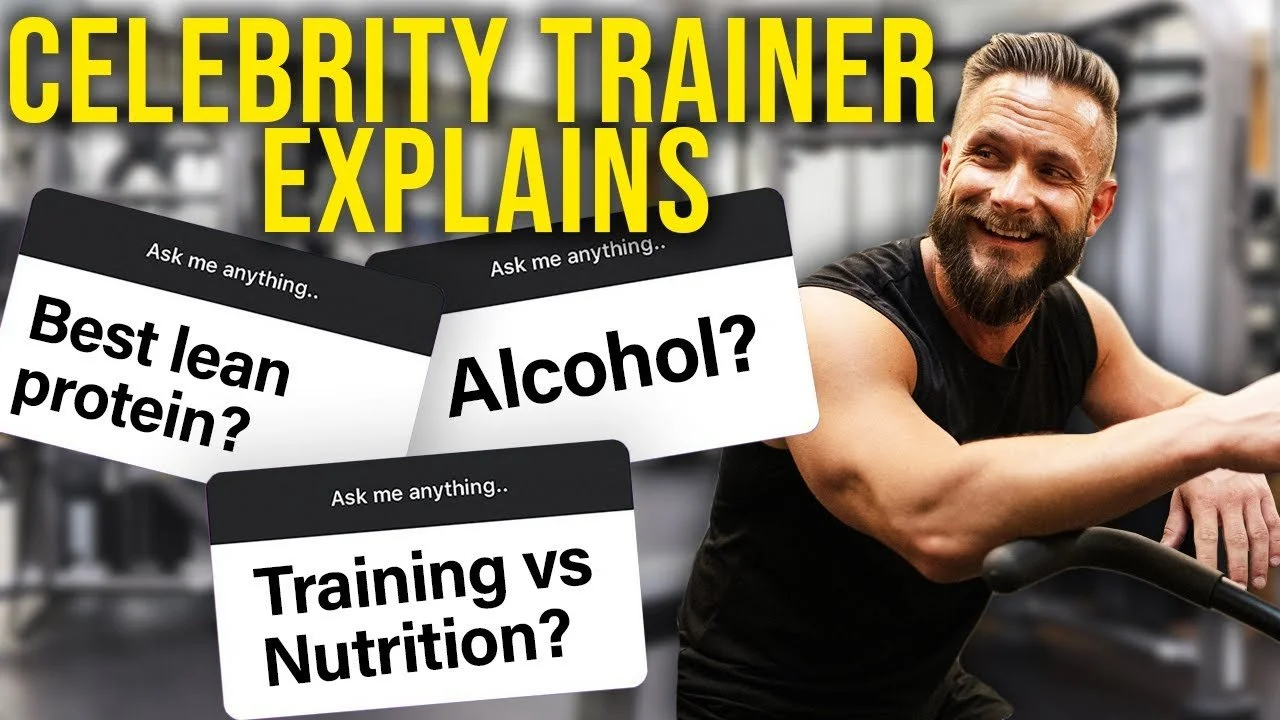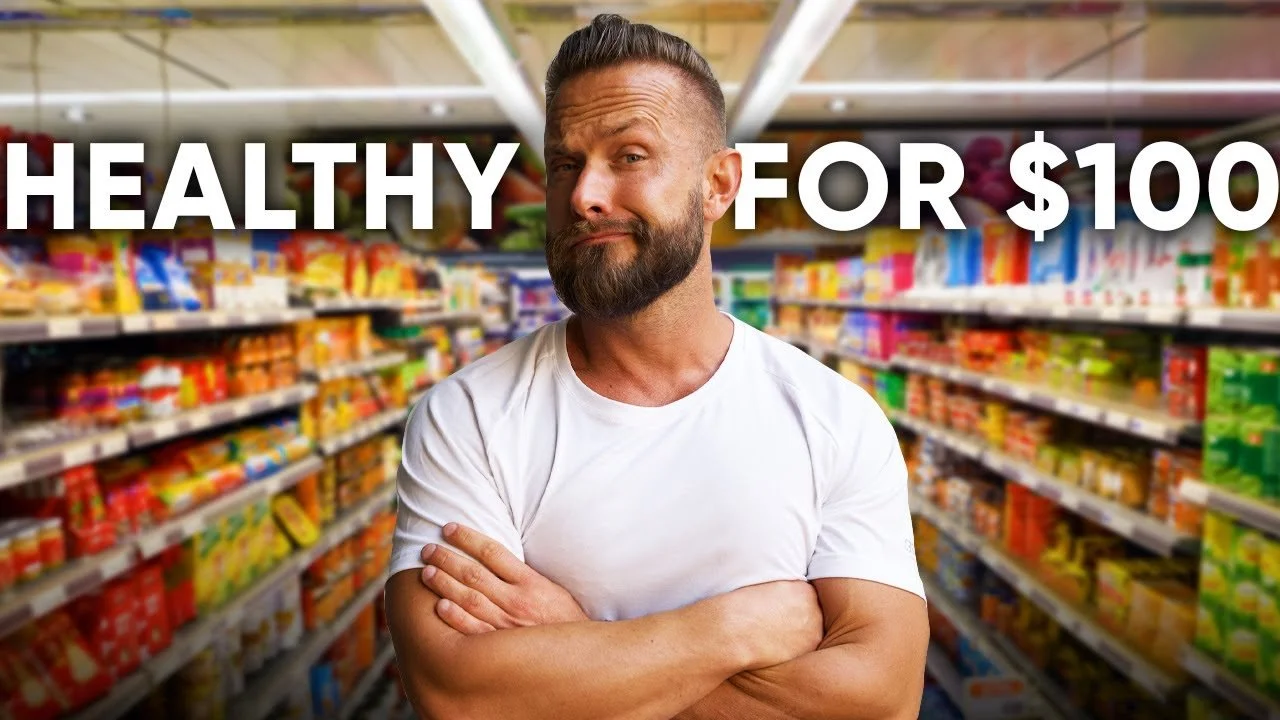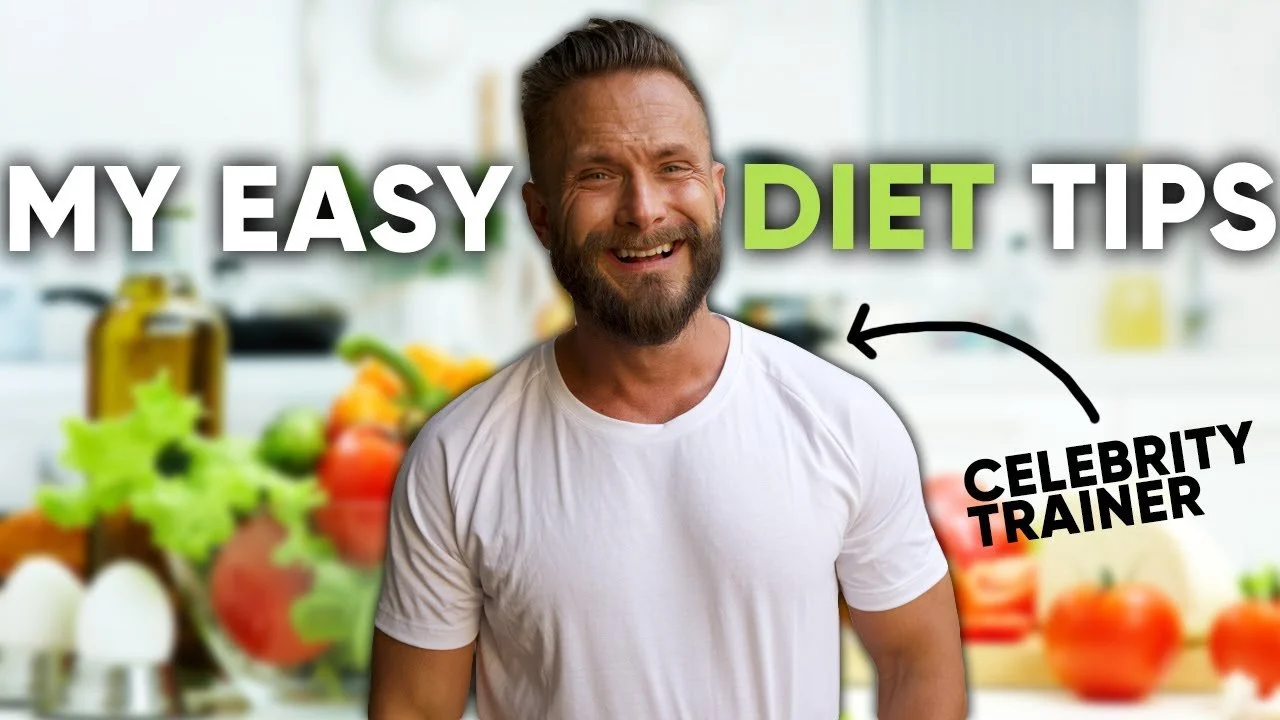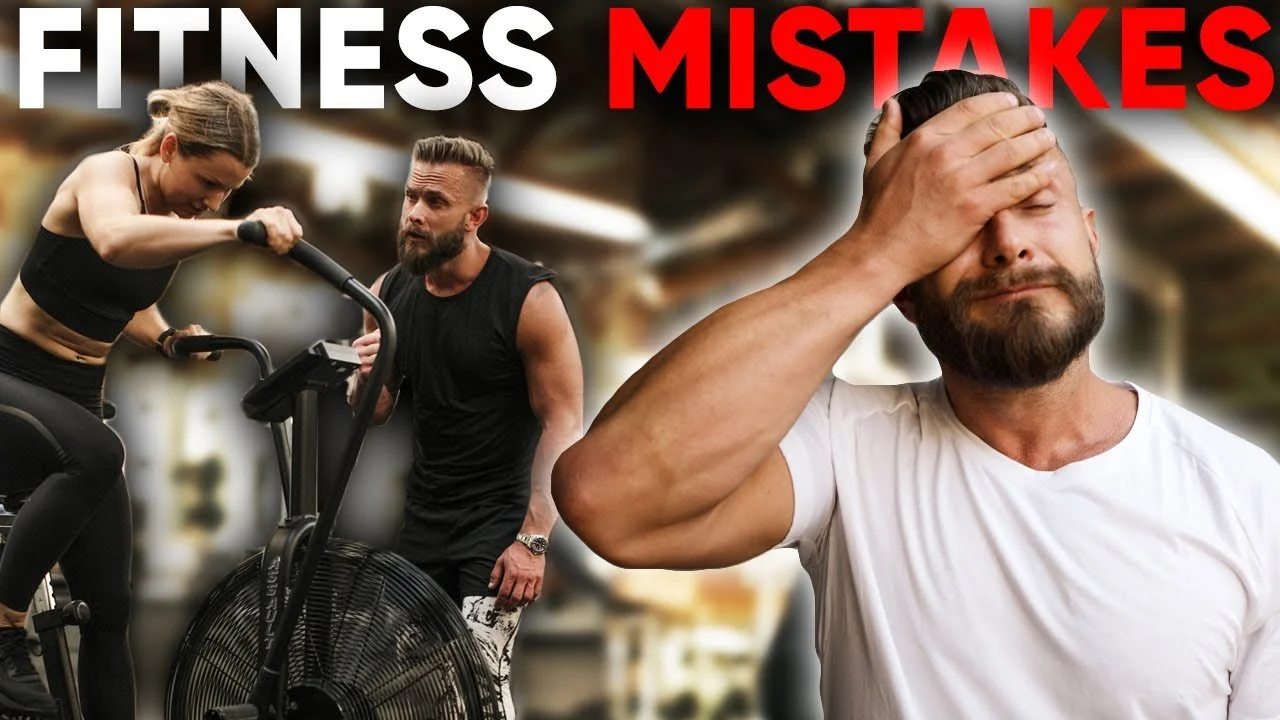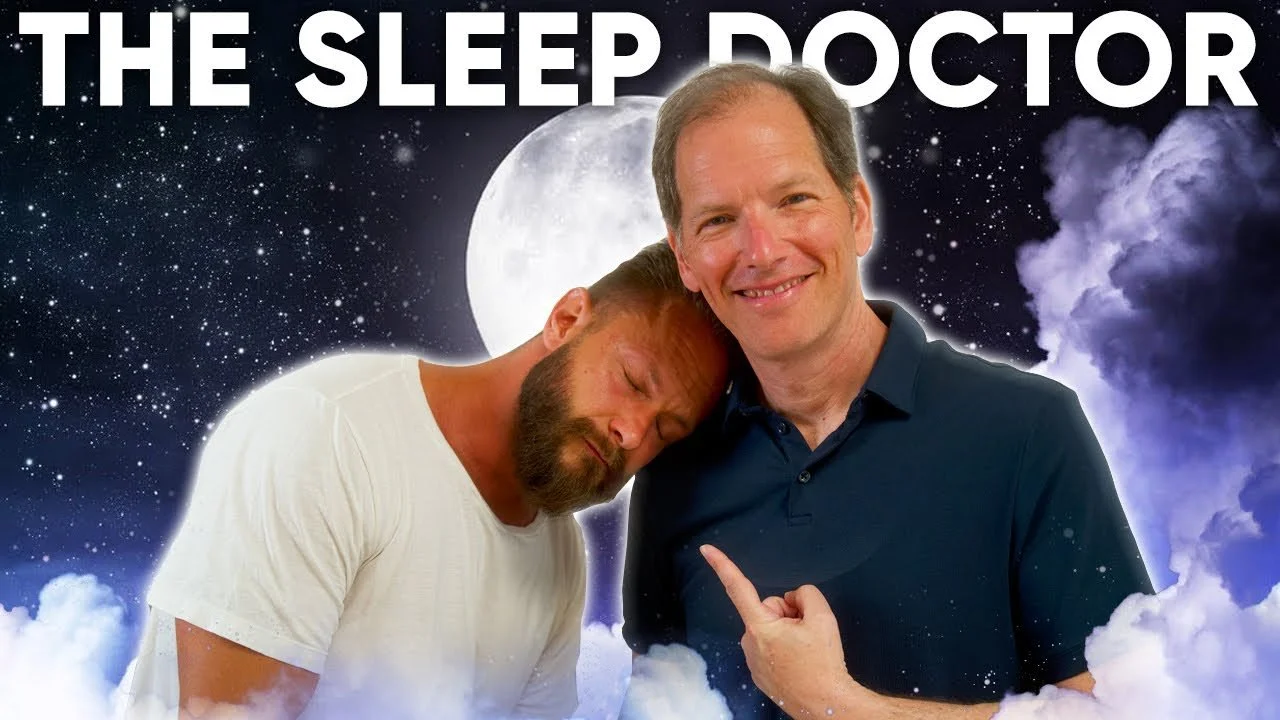Terrible Nutrition Advice Debunked: What Science Really Says
Nutrition is one of the most debated topics online, and it’s easy to see why. With thousands of influencers pushing their own diets, weight loss hacks, and so-called "miracle" foods, it’s hard to know what’s actually beneficial and what’s just good marketing. Unfortunately, much of what you see online is either misleading or downright false. Let’s break down some of the most common examples of terrible nutrition advice and separate fact from fiction.
1. The Liver King Myth: Should You Eat Raw Organs?
One of the most extreme claims out there is that eating raw liver (and other organs) is the key to peak health. Proponents argue that because lions and killer whales eat organs first, we should do the same. They claim that raw liver is packed with nutrients like vitamin A, iron, and peptides that will help you dominate life.
While it’s true that liver is a nutrient-dense food, eating it raw isn’t necessary—or even safe. Raw organs can carry harmful bacteria and parasites, and consuming excessive amounts of vitamin A can be toxic. A balanced diet, rather than an extreme one, is always the best approach.
2. Magic Weight Loss Drinks: Do They Actually Work?
Some social media influencers promote homemade drinks made with lemon, cinnamon, honey, and red pepper, claiming that they’ll help you lose 14 pounds in seven days. The reasoning? These ingredients supposedly "boost metabolism," "burn fat," and "regulate blood sugar."
Here’s the truth: While these ingredients have some health benefits, they do NOT cause weight loss on their own. In fact, adding honey or other caloric ingredients actually increases your calorie intake, which could have the opposite effect. The only proven way to lose weight is to maintain a calorie deficit—burning more calories than you consume.
3. Add, Don’t Restrict? The Problem with This Approach
Another popular piece of nutrition advice is "add, don’t restrict." This means instead of cutting out unhealthy foods, you add healthier options to balance things out. In theory, it’s a great approach—except when it leads to an excessive calorie intake.
For example, one influencer suggested adding Greek yogurt, walnuts, and berries to a cookie to make it "healthier." While these ingredients are nutritious, they also add a significant number of calories. If weight loss is the goal, simply eating the cookie as a treat and keeping overall calorie intake in check is a better approach.
4. The Raw Meat Energy Drink: A Recipe for Disaster
One of the most shocking nutrition claims is that energy drinks are bad for you because they contain artificial sweeteners and processed sugars. Instead, one influencer recommended making a "natural energy drink" using raw beef, raw heart, raw liver, raw testicles, goat’s milk kefir, raw egg yolks, salt, honey, and butter.
This is a prime example of terrible nutrition advice. Not only does consuming raw meat pose serious health risks, but the claim that artificial sweeteners destroy gut bacteria is also false. Numerous studies show that moderate consumption of artificial sweeteners is safe. If you want an energy boost, a balanced meal with complex carbs and protein is a far safer and more effective option.
5. Does Skipping Breakfast Really Make You Live Longer?
Intermittent fasting is a great tool for weight loss because it helps control calorie intake. However, some influencers take it a step further, claiming that skipping breakfast is a "marketing scam" and that fasting directly leads to a longer life.
While fasting has some benefits, there is no scientific evidence proving that skipping breakfast increases lifespan. What matters most is overall calorie intake and food quality. Some people thrive with intermittent fasting, while others feel better eating regular meals. The best diet is the one that fits your lifestyle and keeps you healthy long-term.
6. Cinnamon Water for Weight Loss: Another False Claim
Drinking cinnamon water is often touted as a "weight loss hack." While cinnamon can help regulate blood sugar levels, it doesn’t directly lead to weight loss. Weight loss happens when you burn more calories than you consume—there’s no shortcut.
Similarly, while foods like pistachios contain melatonin, which helps with sleep, eating them won’t magically cure insomnia. Nutrition plays a role in overall health, but it’s just one piece of the puzzle.
How to Spot Terrible Nutrition Advice
With so much misinformation out there, it’s crucial to think critically about nutrition claims. Here are a few red flags to watch for:
Extreme claims (e.g., "Lose 14 pounds in a week!")
Lack of scientific backing (If there’s no research, be skeptical.)
Demonization of entire food groups (e.g., "Vegetables are bad for you.")
Promotion of raw or extreme diets (Raw organ meat is not a superfood!)
Instead of falling for fads, focus on a well-balanced diet that includes a variety of nutrient-dense foods. Nutrition should be sustainable, enjoyable, and based on real science—not marketing gimmicks.
If you’re looking for expert-backed guidance on nutrition and fitness, check out the Magnus Method App for personalized workout and nutrition plans that actually work. Let’s get stronger, healthier, and smarter about what we put into our bodies!
More from the blog
Staying healthy starts with what you put on your plate! In this guide, we’ll dive into expert-backed Nutrition Tips for a Healthy Lifestyle. From balancing proteins, fats, and carbs to managing nutrition on vacation, these tips will help you fuel your body the right way. Whether you're looking to lose weight, build muscle, or just eat better, this article has got you covered.
When it comes to nutrition, there’s no shortage of advice—but not all of it is good. In fact, some of the worst tips come from social media influencers promoting unscientific claims. From "magic weight loss drinks" to "energy drinks made of raw organs," there’s a lot of terrible nutrition advice floating around. Let’s break down these myths and find out what real, science-backed nutrition looks like.
Want to train like a NORTHMAN Viking? This workout, inspired by Alexander Skarsgård’s training for The Northman, focuses on raw strength, mobility, and endurance. With Viking-style exercises, you will build a battle-ready physique that is functional and powerful. Ready to train like a warrior? Let’s get started.
Looking to build strong, defined glutes? My 30 Day Booty Transformation Challenge is designed to isolate and grow your glutes without overworking your legs. Using bands and targeted exercises, this program is easy to follow at home in just 20 minutes per session. Ready to sculpt your glutes? Let’s get started!
Alexander Skarsgård’s Viking transformation for The Northman wasn’t just about intense training—it was fueled by a meticulously planned diet. Curious about what Alexander Skarsgård ate? From protein-packed omelets to balanced meals of steak and vegetables, his nutrition was designed to build muscle and sustain energy during the demanding filming schedule. Learn how his carefully timed meals and macronutrient strategy helped him embody the strength and power of a Norse warrior.
Alexander Skarsgård’s transformation for The Northman was nothing short of legendary. Did Alexander Skarsgård train like a Viking? Absolutely! His rigorous workouts focused on building strength, agility, and endurance, embodying the primal power of his character, Amleth. From weightlifting to stunt training, this approach highlights the dedication it takes to step into the boots of a Norse warrior.
Looking for alcoholic drinks that fit your healthy lifestyle? These five low-calorie options, from spritzers to light beer, are perfect for indulging without guilt. Each drink is crafted to minimize sugar and calories while maximizing flavor. Stay on track with your fitness goals and enjoy responsibly!
Explore the world of intermittent fasting in our comprehensive guide, backed by expert knowledge from a seasoned nutritionist and scientist. Learn about the myriad benefits, uncover the best fasting methods, and embark on a journey to a healthier you. Join us as we delve into the science and art of intermittent fasting.
Struggling to find snacks that are healthy, quick, and help you build muscle? These five high-protein healthy snacks are perfect for staying full and fueling your day. From Mexican tuna to protein-packed pancakes, each recipe takes less than five minutes to prepare. Easy, delicious, and designed to fit into your fitness goals—try them today!
Building muscle can be challenging without the right approach. Should you focus on diet or exercise for muscle gain? This article covers essential fitness tips that combine proper nutrition, strength training, and recovery to help you maximize your muscle growth. Get the inside scoop on what it really takes to see long-term results!
Ready to take your fitness to the next level? The final week of the 30-Day Shred Challenge is here, and it’s time to get in shape and finish strong. This week’s focus is on intense arm workouts, core supersets, and fine-tuning your nutrition to hit your goals. Follow along for tips, motivation, and the ultimate guide to achieving your best transformation yet!
Struggling to lose weight quickly? These 8 celebrity personal trainer nutrition hacks can help you shed pounds effectively and sustainably. From eating more frequent, balanced meals to avoiding sugar and incorporating strength training, these tips are designed to boost your metabolism and keep you on track. Read on to transform your body with simple, science-backed strategies!
Eating healthy doesn't have to be expensive. With smart shopping and meal planning, you can enjoy nutritious meals without breaking the bank. From affordable protein sources like chicken and eggs to nutrient-dense vegetables, learn how to build a grocery list for healthy eating on a budget.
Discover how balanced meals, understanding macronutrients, and reading food labels can help you transform your body with healthy eating. Follow these healthy nutrition tips for weight loss, and build sustainable and enjoyable dietary habits.
Starting your fitness journey can be overwhelming. Many beginners fall into common workout mistakes that stump their progress. From overtraining to poor nutrition, knowing what to avoid is crucial. Learn how to sidestep these mistakes and set yourself up for success with these expert tips.
Creating a healthy sleep routine can significantly improve your overall health. Incorporate the "Power Down Hour," invest in quality sleep equipment, and develop a consistent morning routine. By focusing on hydration, morning sunlight, and calming bedtime practices, you can enhance your sleep quality. Learn practical tips and methods to make your sleep more restful and rejuvenating.
Struggling with weight loss and wondering how to lose weight quickly? The truth is, spot reduction won’t work. This article breaks down why targeting specific areas of fat doesn’t lead to faster results. Instead, learn the science behind full-body fat loss, and discover sustainable strategies that really work.
If you want to build muscles, should you focus more on your diet or your workouts? This article breaks down the importance of both, focusing on training to build muscle mass through proper strength training and progressive overload, while also highlighting how diet plays a crucial role in fueling muscle growth. Discover the ultimate formula for building muscle and learn how to balance your efforts for the best results!
Back pain can seriously impact your daily life, but simple posture adjustments and home treatment for back pain can make a world of difference. In this article, we cover essential exercises, stretches, and lifestyle tips to help you prevent and alleviate back pain. Discover how improving your posture can lead to a healthier, more confident you. Start taking action today for long-term relief!
Struggling to find time to cook healthy meals? These easy, high-protein meals can be made in just 10 minutes, helping you stay on track with your fitness goals even with a busy schedule. Packed with nutrients and designed for simplicity, these recipes will give you the energy you need. Try them out and see how quick and healthy eating can be!
There’s a lot of fitness advice out there, but not all of it is helpful. In fact, some common fitness advice myths can actually hold you back. From the myth of spot-reducing fat to the belief that more sweat equals better results, this article dives into misconceptions that may be slowing down your fitness progress. Get real, science-backed fitness advice to keep you on track!
Losing weight doesn’t mean cutting out all the foods you love. In this guide, we’ll explore the importance of calorie deficit for weight loss and how to strike a balance between healthy eating and enjoying life. By making small adjustments to your eating plan, monitoring your progress, and staying consistent, you can achieve long-term weight loss without feeling deprived. Discover how to create a sustainable approach that works for you.
Starting your fitness journey can be intimidating, but this gym guide is here to make it easier. From choosing the right gym to mastering basic exercises, you'll find actionable tips to help you build confidence and see progress. Learn how to prepare, select proper equipment, and create a sustainable workout routine tailored to your goals. Whether you're new to fitness or looking to refine your approach, this guide has everything you need to succeed in the gym.
Creating the perfect workout plan starts with understanding how to target muscle groups effectively. In this guide, I’ll walk you through programming strategies tailored to your goals, time, and experience level. Whether you're a beginner or looking to optimize your routine, you'll learn to balance strength, cardio, and recovery for maximum results. Let’s turn your fitness vision into a sustainable, action-driven plan!
In a rush but craving a nutritious snack? Look no further! Our collection of 8 quick and easy healthy snack recipes will satisfy your cravings in no time. From protein-packed bean salad to creamy Greek yogurt delights, these recipes are perfect for busy days or when you need a tasty pick-me-up.
Discover valuable insights into training and nutrition from Magnus, a seasoned fitness expert with over two decades of experience. In this blog post, Magnus answers your most pressing questions, from losing stubborn fat to building muscle during a cut. Get ready to unlock the top training and nutrition tips to stay fit.
Take an incredible journey from the heart of Sweden to the glitz and glamor of Hollywood. In this blog post, I'll share the story of how I went from being a relatively unknown trainer to becoming a sought-after celebrity trainer in the entertainment capital of the world. From my early days, working tirelessly and saying yes to every opportunity, to my fortunate encounters with high-profile clients, you'll get a glimpse into the trials and triumphs of my career.
Traveling for work or leisure doesn’t mean you have to skip your workouts. In this guide, I’ll show you how to workout while traveling. Learn how to perform effective exercises using just your hotel room and minimal equipment. From push-ups to skaters, keep your body active and maintain your fitness routine no matter where you are.












